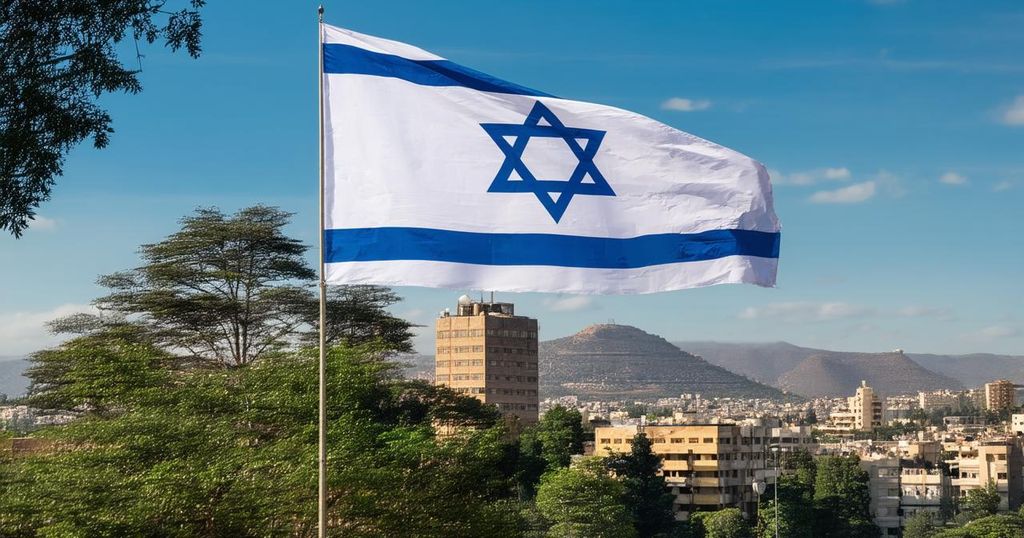Potential Relocation of Israeli Embassy to Eswatini: Diplomatic Implications and Concerns

Eswatini is possibly moving towards reopening diplomatic relations with Israel, which may involve reestablishing an Israeli embassy in the kingdom. This decision comes amid Israel’s increasing isolation due to its actions in Gaza and Lebanon. Officials have indicated ongoing high-level consultations, while critics express concerns regarding the implications of closer ties with Israel, especially concerning Eswatini’s relations with Arab nations.
The Kingdom of Eswatini, located in Southern Africa, maintains a diplomatic relationship with Israel that spans over five decades. Recent reports suggest that amidst Israel’s growing international isolation due to its military actions in Gaza and Lebanon, Eswatini is moving closer to strengthening its ties with Israel. This could potentially result in the reopening of the Israeli diplomatic mission in Mbabane, Eswatini’s capital, a post that was previously closed in 1994. Currently, the diplomatic relations have been managed from Pretoria, South Africa, where the Israeli Embassy is located. Relations between Israel and South Africa have become increasingly strained, particularly because South Africa has emerged as a vocal critic of Israel’s military actions. This circumstance may enhance the potential for Israel to relocate its mission to Eswatini, although officials from both nations have remained silent on the specifics of such a move. In June, Newman Ntshangase from the Eswatini Foreign Ministry indicated that high-level consultations were ongoing, and any developments would be made public only when both governments reach a mutual agreement. Notably, the right of Israel to determine its diplomatic presence in Eswatini was affirmed by Ntshangase, emphasizing that any decisions would follow a formal consent process with the Eswatini government. Eswatini’s King Mswati III’s spokesperson, Percy Simelane, defended the nation’s autonomy in selecting diplomatic partners, asserting that the kingdom has the prerogative to engage with Israel without needing the approval of other nations. Furthermore, he highlighted that Israel’s historical presence in Eswatini predates the current monarchy. Contrarily, some critics, including Thokozane Kunene of the Communist Party of Swaziland, dismissed the idea of Israel’s embassy reopening as an indication of the Eswatini government’s alignment with Israel’s interests, including alleged support for the regime’s stability in the face of domestic unrest. Concerns are also voiced by political commentators like Petros Qambukusa Magagula, who warns that the reestablishment of the Israeli diplomatic presence could tacitly endorse Israel’s actions in Gaza, further complicating Eswatini’s international relations, particularly with Arab nations that have historically supported the kingdom. Despite these concerns, Simelane dismissed the notion that Eswatini would alienate itself from its Arab allies, suggesting that such countries would respect Eswatini’s sovereignty and choices. Overall, the situation remains fluid as Eswatini weighs the implications of potentially becoming home to an Israeli diplomatic mission once more.
The article discusses the diplomatic relationship between Eswatini and Israel, highlighting the potential for Israel to reopen its embassy in Eswatini amidst the backdrop of rising international scrutiny of Israel’s actions in Gaza and Lebanon. It provides context on the historical ties between the two nations and explores differing perspectives on the implications of such a move, particularly concerning international relations with the Arab world and regional dynamics.
In conclusion, while the possibility of Israel reopening its embassy in Eswatini presents an opportunity for strengthened bilateral relations, it simultaneously raises concerns about Eswatini’s international standing and its relationships with Arab nations. The ongoing discussions indicate significant diplomatic considerations, and both nations appear cautious in their approach to this potential development.
Original Source: www.middleeastmonitor.com








